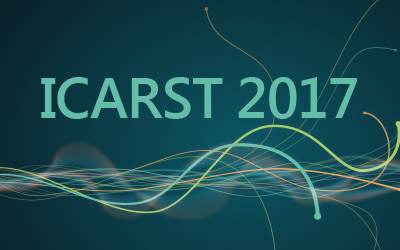Speaker
Mr
Paul LIVOLSI
(CEA - INSTN, France)
Description
The National Institute for Nuclear Science and Technology (INSTN) created in 1956 by the French
Government has been designated as an IAEA Collaborating Centre in May 2016. This recognition
allows the Agency to receive support from this Institute to implement its programs of which those from
the Department of Nuclear Sciences and Applications.
The perimeter of this collaborating centre is "Education and Training in nuclear technologies industrial
and radiopharmaceutical applications".
The INSTN and the Agency have defined a work plan to host specific training courses, or to develop
new training courses in connection with INSTN's areas of expertise. Thus at the end of June 2017, a
three weeks training course on "Training and certification for industrial applications of radiation
technologies: radiotracers Residence Time Distribution approach and sealed sources column
scanning technique" will be organized in Saclay, near Paris. Through column scanning equipment
dedicated to training, innovative training methods, practical room for manipulating radiotracer,
theoretical contributions will be delivered by experts from the Agency and practical work will be carried
out by participants consisting of both fellows of the Agency but also professionals from the host
country. This training will benefit from the infrastructure and logistics of the INSTN for the safe use of
radionuclides used for tracing.
The INSTN as a part of the French Atomic Energy Commission (CEA), is under the joint supervision of
three ministries: Ministry of National Education, Higher Education and Research, Ministry of the
Economy, Industry and the Digital Sector, and Ministry of Ecology, Sustainable Development and
Energy. The Institute has partnerships with various universities and higher education institutions in
France and abroad but also with technical schools for academic degree from operator to PhD diploma,
mostly in the nuclear domain.
The Institute organises tailor-made professional training courses in France or abroad and support
Continuing Professional Development so as to increase staff skills in a large spectrum of nuclear
activities such as: nuclear engineering and applications, detection and measurements of radiations;
radiation protection, chemistry and radiochemistry; Nuclear medicine, radiopharmacy, medical
physics, radiotherapy and molecular imaging; new technologies for energy, economics of energies;
micro and nanotechnologies.
In the field of academic and vocational training, INSTN also signed another agreement with the IAEA
in 2014 which helped to launch the project of Virtual Reactor Laboratory (Internet Reactor Laboratory)
which will allow students from European universities a remote access, via the Internet, to the ISIS
research reactor (nominal power of 700 kW). These students can monitor, through a video system (via
Internet), the operation of the ISIS reactor by exchanging with a trainer-operator present in the control
room of the installation of the CEA-Saclay.
For 60 years, the INSTN is a key-player in France for Education & training in nuclear domains such as
industry, research and medical. Being designated Collaborating Centre will strengthen connections
that INSTN has with the IAEA.
| Country/Organization invited to participate | France |
|---|
Author
Mr
Paul LIVOLSI
(CEA - INSTN, France)

